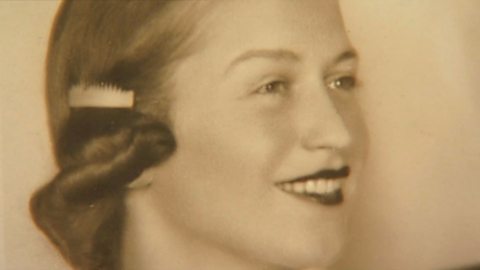DAN SNOW: Hi, I'm Dan Snow, and I'm here at the Imperial War Museum in London. I'm here to find out about WWII, and using clips from the BBC archive to look specifically at the history of the Holocaust. This was the genocide that saw millions of Jews murdered in German concentration camps between 1941 and 1945.
DAN SNOW: And perhaps the most notorious of these camps was Auschwitz.
NARRATOR: 1,300,000 people were sent to Auschwitz during the four and a half years of its existence. 1,100,000 of them died here.
NARRATOR: Hundreds of Jehovah's Witnesses, homosexuals and other minorities were murdered. 15,000 Soviet prisoners of war. 21,000 gypsies. 70,000 Polish political prisoners. And 1,000,000 Jews, at least 200,000 of them children.
ALICE LOK CAHANA: In this photograph, I recognise my aunt. Her name is Yolan Volstein. And her four little children, Irvin, eight years old. Dory, ten years old, Yehudit, six years old. And Naomi, the little baby, two years old. It's such an incredible shattering feeling to recognise somebody you love, to see how they looked minutes before they enter the crematorium.
NARRATOR: Evidence of what the Nazis did lies all around here, waiting to be rediscovered by future generations. A reminder of what human beings are capable of creating.
DAN SNOW: The numbers of people who died at places like this are so huge that it's almost hard to comprehend. And over time, some have claimed that the horrors of what happened have been exaggerated.
NARRATOR: There are even those who deny the reality of what took place here. And it was to confront them that Oskar Gröning finally broke his silence about his own personal history.
TRANSLATOR: I see it as my task now, at my age, to face up to these things that I experienced and to oppose the Holocaust deniers who claim that Auschwitz never happened. And that's why I'm here today. Because I want to tell those deniers, "I have seen the crematoria, I have seen the burning pits, and I want you to believe me that these atrocities happened. I was there."
DAN SNOW: The man speaking about working at Auschwitz was Oskar Gröning. His job had been to take care of money and possessions taken from Jewish prisoners. And even though he was trying to prove that terrible things had really happened, his interviews with the BBC led him to being prosecuted for being an accessory to murder.
DAN SNOW: He was found guilty and sentenced to four years in prison, but died before going to jail, aged 96.
Video summary
Dan Snow introduces a report about the brutal conditions faced by people at Auschwitz.1.1 million people were murdered at the death camp, including Jews, Jehovah Witnesses, homosexuals, Soviet prisoners of war, gypsies and Polish political prisoners.
Alice Lok Cahana, a survivor of Auschwitz, describes the loss of her family members.
The report also includes testimony from Oscar Groening, who spoke out about the horrors of the concentration camps to silence people who doubted the events of the Holocaust.
This short film is from the BBC series, World War Two with Dan Snow.
This short film contains scenes which viewers may find upsetting. The films are intended for classroom use but teacher review is recommended prior to watching with your pupils. You know best the limit of your pupils, and BBC Teach does not accept any responsibility for pupil distress.
Teacher Notes
Key Stage 3:
This short film could be linked to prior work students will have covered on anti-Semitism.
Why were the minority groups mentioned in the clip persecuted by the Nazis?
What propaganda had the Nazis used to convince people in Germany that these groups were a threat to them and needed to be punished?
Key Stage 4:
You could hold a class discussion around the Oscar Groening testimony in this short film.
Is it right that he should have been charged for his role at Auschwitz so long after events there?
Do they feel people like Oscar Groening should have been interviewed for a BBC programme?
This short film will be relevant for teaching KS3 and KS4/GCSE history in England, Wales and Northern Ireland and National 4/5 history in Scotland.
What does Rudolph Höss' evidence tell us about Auschwitz? video
Dan Snow introduces a report about the role of Rudolph Höss, the commandant of Auschwitz, in the Holocaust, based on the testimony he wrote before his trial.
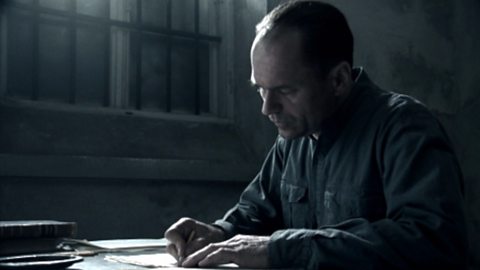
How did Auschwitz expand? video
Dan Snow introduces a clip about the expansion of Auschwitz to deal with the number of Jewish people being transported to concentration camps.
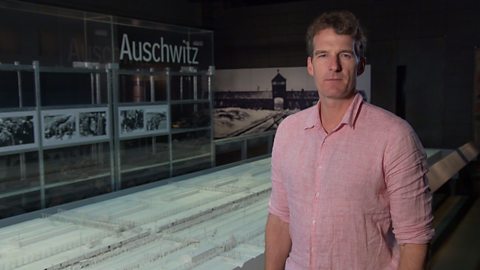
How did the use of gas chambers develop in the Holocaust? video
A look at the introduction of gas chambers at Auschwitz, how the Nazis started using gas vans and then going on to use gas chambers at camps.
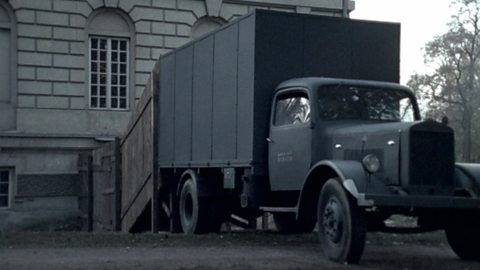
What happened in the gas chambers at Auschwitz? video
A report about the gas chambers at Auschwitz, including some of the testimony from Rudolph Höss.
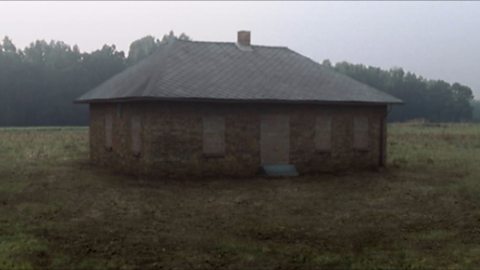
How did a pregnant woman survive the Holocaust? video
The story of Anka, who was pregnant when she arrived at Auschwitz, yet managed to survive and give birth to a daughter, Eva.
